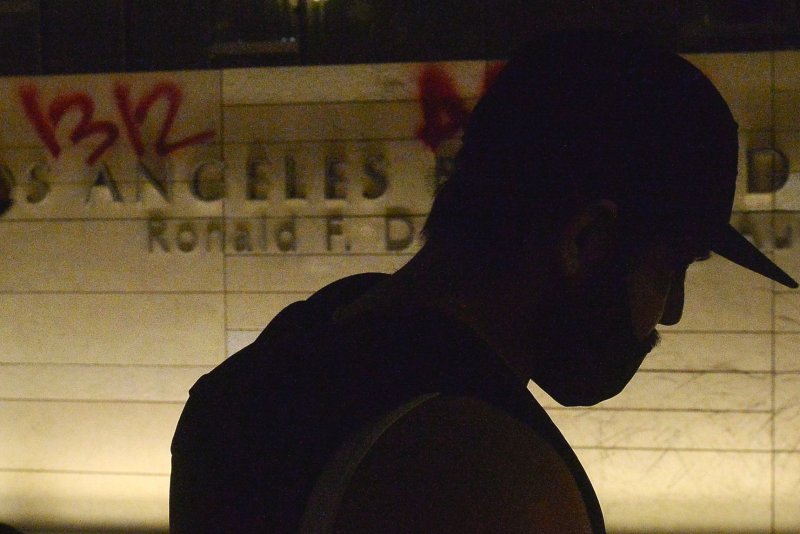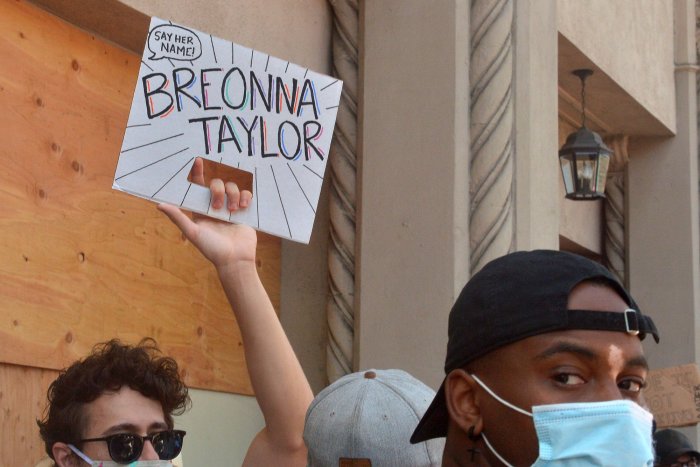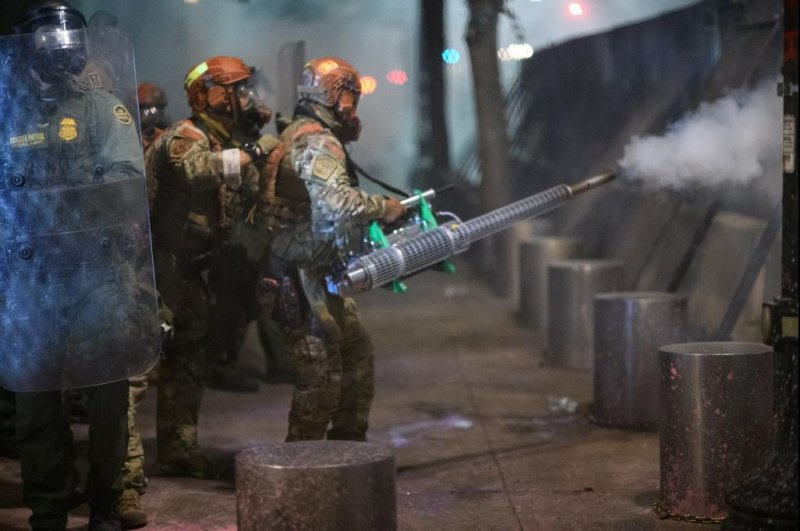
Hundreds of demonstrators gather in downtown Los Angeles, Calif., on May 27 to protest the police killing of George Floyd in Minneapolis two days earlier. Floyd died after an officer kept him pinned on the ground for several minutes with his knee pressed to the back of his neck, suffocating him. File Photo by Jim Ruymen/UPI | License Photo
Oct. 21 (UPI) -- Interest by Americans in police reform has reached unprecedented levels this year judging from how they researched the subject online, according to a study published Wednesday.
Researchers at the University of California at San Diego found that in the 41 days following the May 25 police killing of George Floyd in Minneapolis, Google searches for "police" and "reform(s)" rose to record highs, eclipsing past searches on the topic more than 150-fold.
There were more than 1.3 million total searches, said lead author John Ayers, co-founder of the Center for Data Driven Health at the Qualcomm Institute at UC-San Diego.
"Discussing political opinions openly in this polarized landscape is not something anyone is eager to do," Ayers said. "Instead, when it comes to controversial issues like police reform, you're far more likely to stay mum and search online about what you may be thinking."
By examining Internet searches, he said, "decision makers can discover what issues and policies resonate with the public."
The analysis, titled "Quantifying Public Interest in Police Reforms by Mining Internet Search Data Following George Floyd's Death," found that searches for specific topics within the realm of "police reform" following Floyd's death also set new national records.
Searches for "police" and "union(s)" exceeded all-time highs and reached about 1.2 million searches. Queries combining "police" and "training" rose nearly 5 times (820,000 searches) and "police" and "immunity" increased 53-fold (360,000 searches), the researchers found.
Results varied by state. Residents in 33 states, including Arkansas, Pennsylvania, Minnesota and New Jersey, searched more for police "training" than any other reform topic. Sixteen states, including Wyoming, Mississippi, South Dakota and West Virginia, searched most for police "union(s)."
Only two states, North Dakota and New Mexico, searched most for police "immunity."
The authors suggested that analyzing Internet search data is a powerful new scientific tool for policy makers for quickly gauging public sentiment.
"Currently, we evaluate the public's interest in policy using methods, like surveys, that ask specific questions relating to a specific point in time... a snapshot of sorts," said co-author Alicia Nobles, assistant professor of medicine at UC-San Diego.
"However, monitoring Internet searches gives us a more robust picture of public interest -- we can capture more voices, in their own words, and in near real time engendering more democratic policy making."
Protesters demand justice in police killing of George Floyd

Demonstrators hold a sign in Los Angeles on June 14 for Breonna Taylor, a black woman who was shot by police in her home while she was sleeping. Photo by Jim Ruymen/UPI | License Photo



















